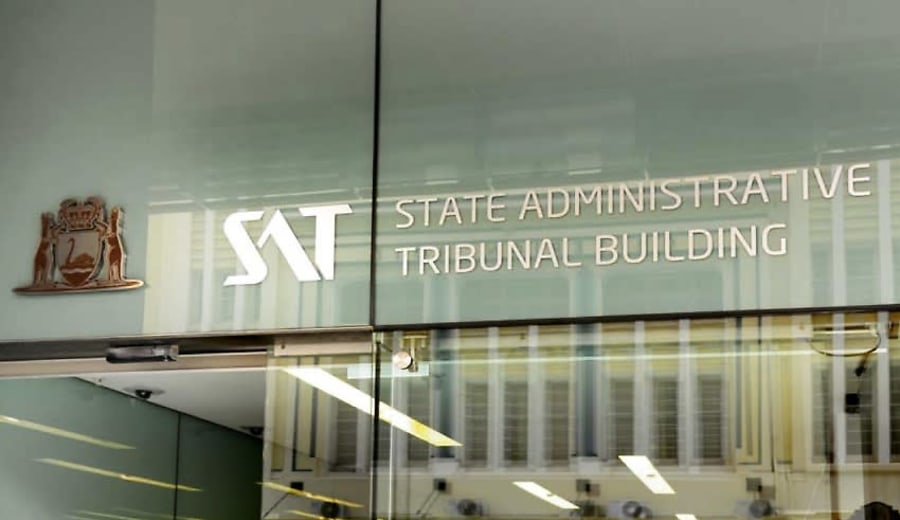A legal complaints committee withdrew an application for disciplinary action over allegations stemming from a controversial radio interview – but the solicitor is still saddled with the costs of her defence.

Over two days in early December 2016, Western Australia solicitor Nicole Anne Young gave media interviews to radio stations about three assault charges her client had been facing. The charges, relating to the client’s teenage son, were since withdrawn by prosecutors.
In the first, Ms Young allegedly said her client’s ex-wife made the complaint after a “parenting disagreement” and to “further her interests in any custody/parenting dispute” before the courts.
Ms Young also allegedly claimed it was “more common” for allegations of child abuse to be made when divorces or disputes become “very bitter and all sorts of allegations come out as the marriage unwinds”.
In the second, Ms Young allegedly suggested the charges had “something to do with the whole domestic violence thing over here at the moment”, further suggesting police “preferred the charges and thought, ‘oh, we’ll just let the courts deal with it’”.
The LPCC alleged this represented “without any, or any reasonable basis” the charges were brought as a “result of a police or direction and without regard to the physical force and coercion alleged to have been used nor the pain and upset the son allegedly suffered”.
The committee was also concerned with a text message Ms Young sent to her client’s ex-wife, allegedly sent in response to the woman’s concern Ms Young had “cherry-picked” parts of the story.
In the response alleged by LPCC, Ms Young said: “I am not required to be balanced or put both sides of the story forward.”
The proceedings against Ms Young were originally commenced in the State Administrative Tribunal in June 2019, but an application was made in September of the same year for the application to be withdrawn.
But in that time, Ms Young applied and had been granted an expedited hearing, and there had been a directions hearing and two mediations.
In September, three days after the LPCC applied to withdraw the matter, Ms Young put the LPCC and the tribunal on notice she intended to seek costs on the grounds the prosecution had “no reasonable basis”, was “oppressive and amounted to an abuse of process”, and was brought “other than in good faith”.
Relating to the last allegation, Ms Young argued the disciplinary application meant she could not “fairly and properly defend the case against her, given that she was obliged to maintain the confidentiality communications with the client” subject to legal professional privilege.
However, the State Administrative Tribunal said this week it was not satisfied there was an appropriate case for the awards of costs.
“Bearing in mind the proper approach to a costs application following from a regulatory body’s decision to withdraw a proceeding, the high threshold constituted by a ‘no reasonable basis’ test, and the fact that aspects of this case raised somewhat novel questions, we are not satisfied that the practitioner has demonstrated that the LPCC had no reasonable basis for the application,” the tribunal found.
“More specifically, the practitioner has not shown that this was a case in which the LPCC had no reasonable basis for its satisfaction that there was a reasonable likelihood that the practitioner would be found guilty of unsatisfactory professional conduct.”
Tribunal ‘disappointed’ by senior counsel
In the judgment, members of the tribunal noted that despite their urgings that the parties – each represented by senior counsel – should resolve the issue by conferral and compromise, “that proved impossible”.
“It is something of an understatement to say that the costs application was vigorously pursued and defended,” they said.
Counsel for Ms Young, Stephen Davies SC, performed 51 hours and 40 minutes for legal work on the application itself, including attendance at hearings and mediations. Two hours were not charged for.
In respect of the costs application, Mr Davies logged over 54 hours, not including the approximately 10 hours spent in the hearing.
Counsel for the LPCC, from McNally & Co Litigation, said the scope of the proceedings was “relatively concise and was not factually complex” and submitted there was no response filed, the matter was on foot for three months, and mediation was only attended to twice.
“From that perspective, we would have anticipated a far more modest amount of time spent on legal work associated with the application. However, it is unnecessary to say more about that in the circumstances,” members of the tribunal submitted.
The tribunal thought it instead necessary to comment on the amount of work done on the costs application itself, which Mr Davies submitted was necessary and arose from the “cost principles” in respect of regulators. He said this was needed to “substantially run the matter”.
The tribunal concluded that even had the costs application been unusual and required greater development than normal, “the devotion of such a significant amount of time to the costs application was grossly disproportionate to the time taken on the application itself”.
“Such an approach to costs was, with respect, entirely out of step with the approach to costs which is taken in the tribunal, and which the tribunal expects will be taken by practitioners acting for parties in the tribunal.
“That such an approach was taken by an experienced senior counsel is even more disappointing. We hope that such an approach is not repeated.”
